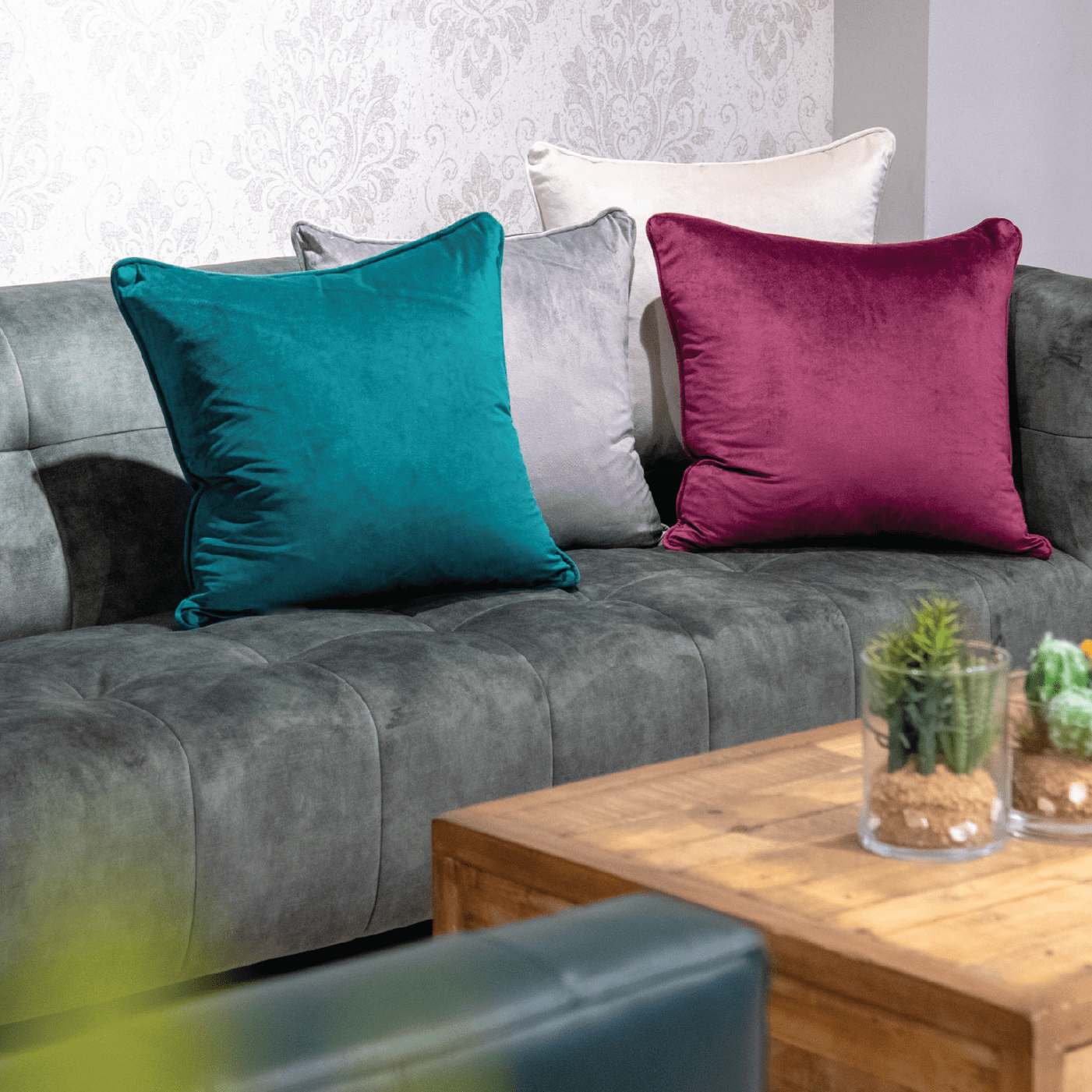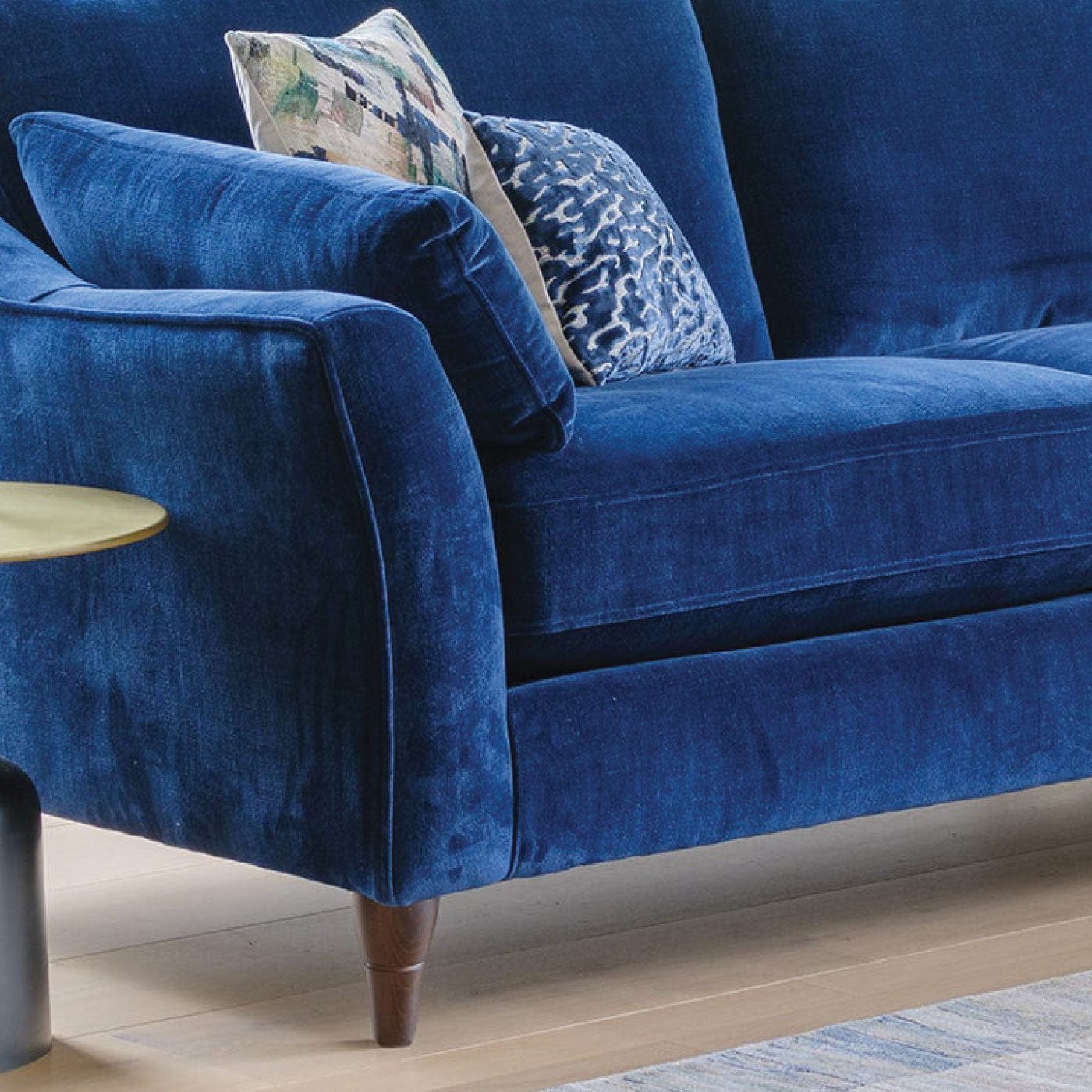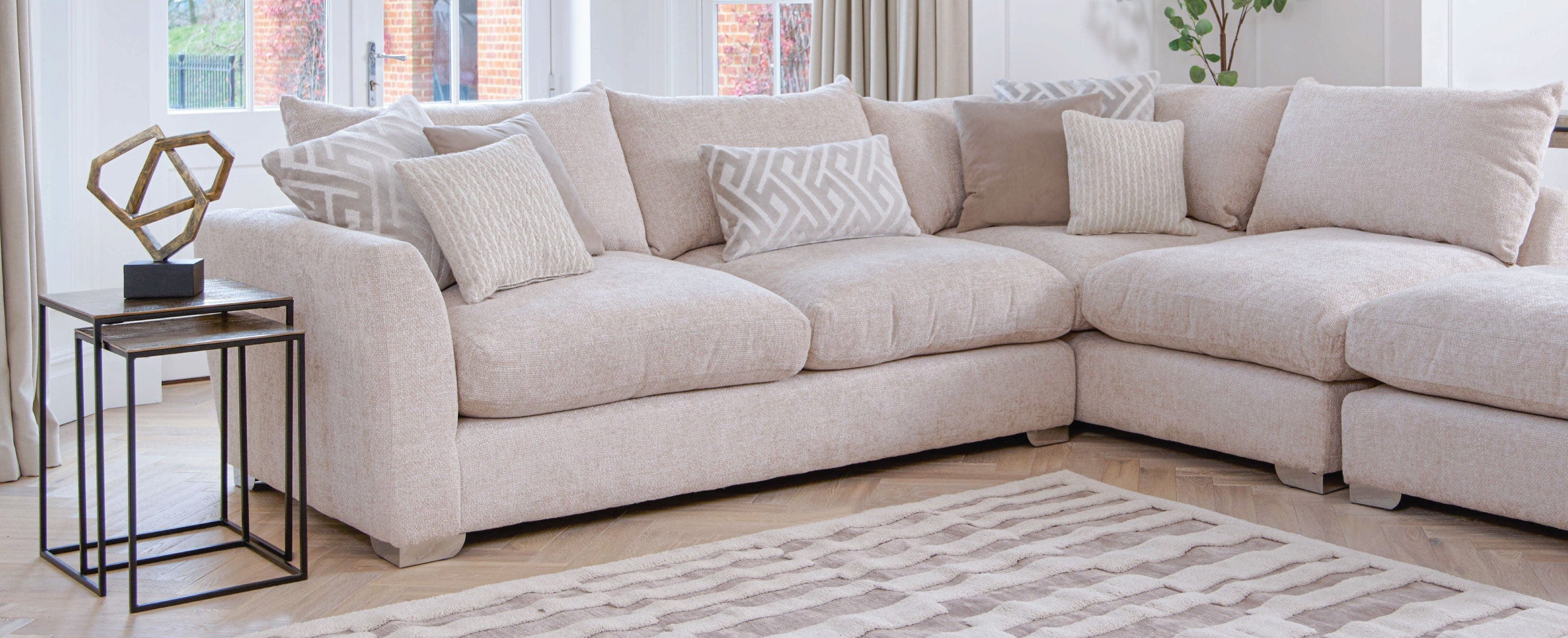Home decor & Rugs care guide
Upholstery Care
Thank you for choosing to purchase your new furniture from Fishpools. This guide will help you care for your investment and prolong its life.
General Care
Gently brush or vacuum your upholstery regularly. Accumulated dirt will increase the wear and dull the colour. Refrain from sitting on the arms or on the edges of your new furniture
Abrasions & Snags
Avoid sharp objects like buckles which can cause snags. If they occur, don't pull them, just cut them off carefully with scissors. Don't allow animals on your furniture and be awre that heavy clothing such as denim can be very abrasive.
Dye Transfer
This may occur from non colour fast clothing items and is particularly noticeable on lighter leather or fabrics. This isnot the fault of the material.

Stains
Spots and spills should be dealt with as soon as they happen by dabbing with a clean absorbent cloth. If your upholstery is protected by our stain warranty, please refer to the separate guarantee and cleaning advice
Cleaning
Dry clean upholstery unless the label says that it can be washed. We recommend cleaning at least once a year by a specialist third-party.
Sunlight & Heat
Avoid positioning sofas and chairs close to heat sources or in prolonged sunlight. Failure to do so may cause excessive colour fading or ageing to the fabric.
Cushions
Reversible cushions should be turned and rotated regularly, with seams squared up to give even wear. Feather and fibre fillwed cushions must be turned and plumped to prevent flattening. Some cushions, especially fixed fibre fillwed arm cushions, may have settled during transit. Regularly plump and dress your cushions into shape.
Recliners
Open and close recliners with care and never force them. It is normal to have gaps between the actions to allow free movement and avoid abrasion.
Puckering & Creasing
Some ranges may be manufactured using a 'relaxed design'. Puckering and creasing are a natural features of this style and can vary depending upon the chosen fabric.
Leather Care
It is important that we highlight the normal and natural characteristics of leather upholstery, and it is quite possible that these unique features may be present. Healed scars, variations in graining, wrinkles, veining and differences in tone are all quite normal and proff of the natural origin of leather.
Puddling
Over time, your new leather sofa will relax. Puddling of seats may occur with use, with the stretching of leather and settlement of the interiors which is completely normal. It is recommended to rotate use of the seating areas to maintain an even appearance.
Oil & grease
Leather can be sensitive to oily substances, including hand and hair oil. we suggest wiping over arm pads and head cushions, especially on high-backed reclining furniture with a leather cleaner to prevent discolouration.
Leather Cleaning
Dust regularly with a soft cloth and occasionally clean with a mild soaping agent. Rinse with clean cold water and wipe off with a dry cloth.



